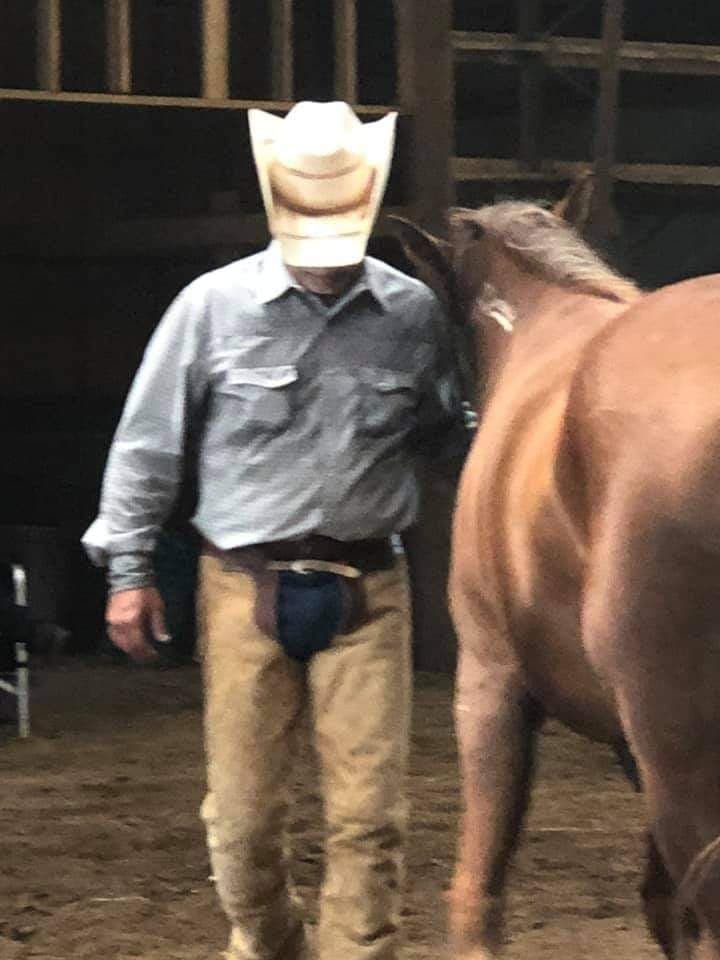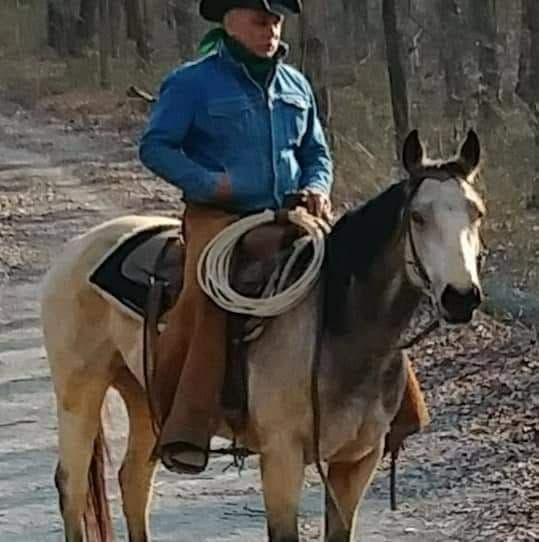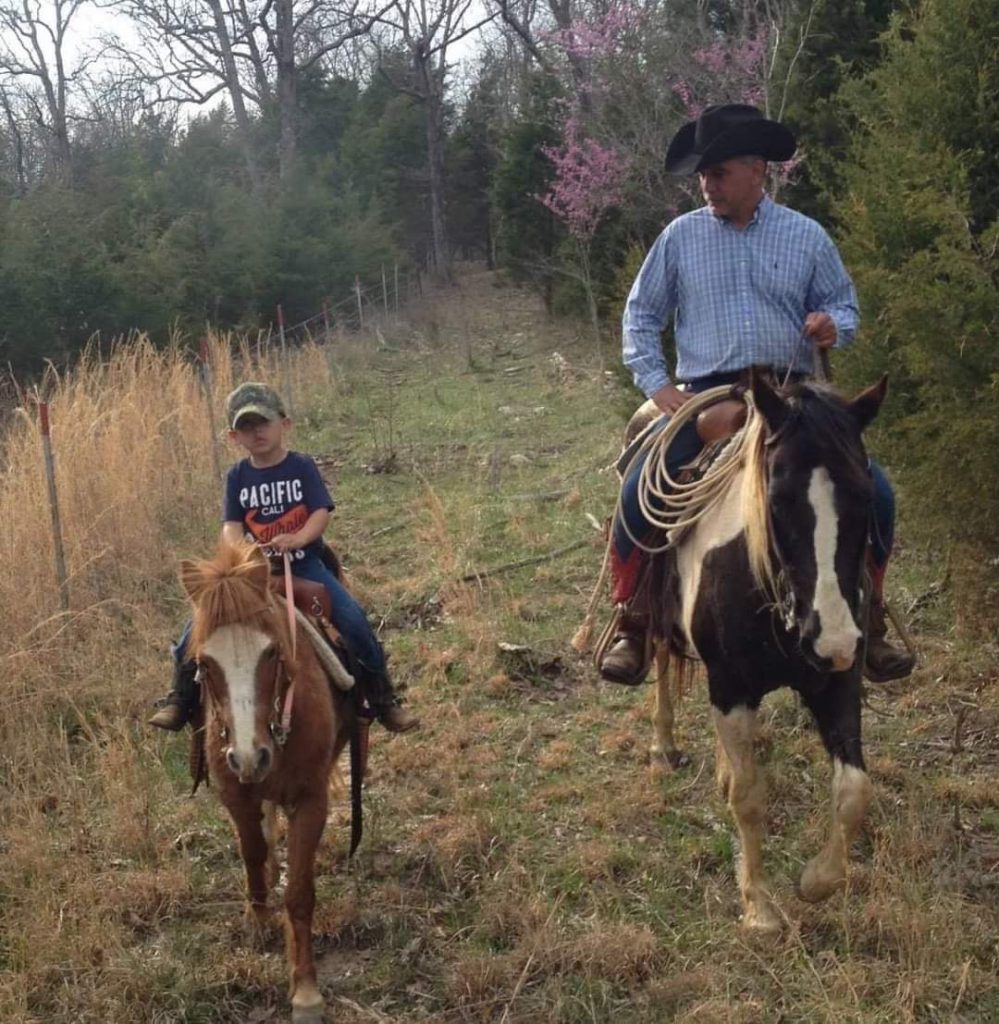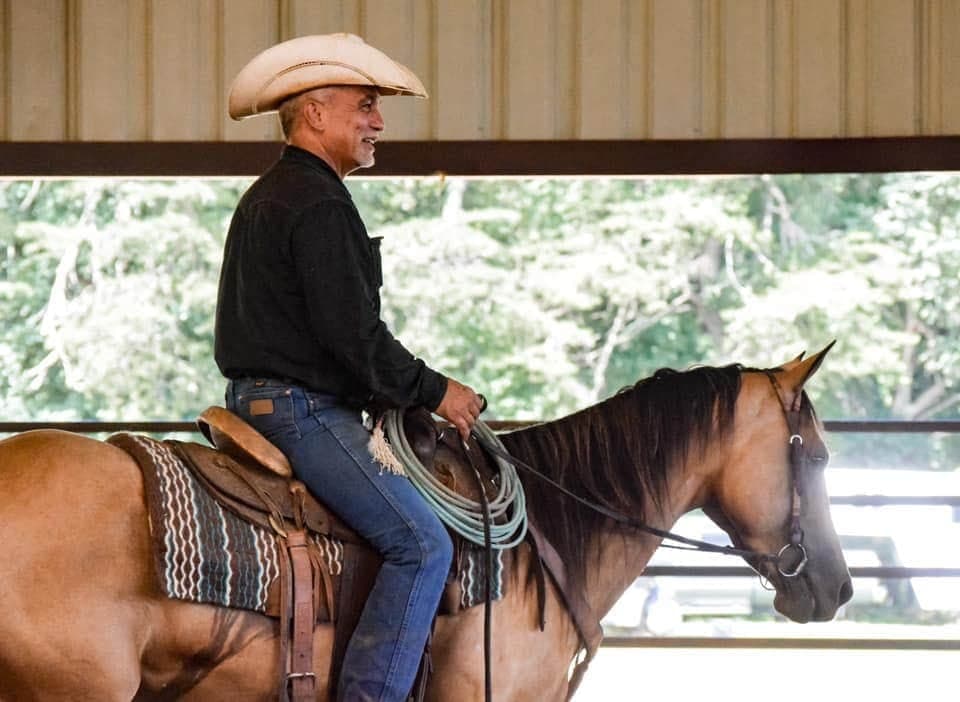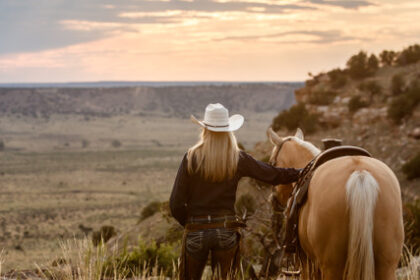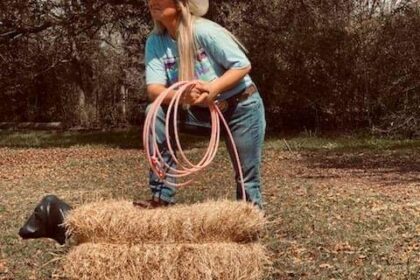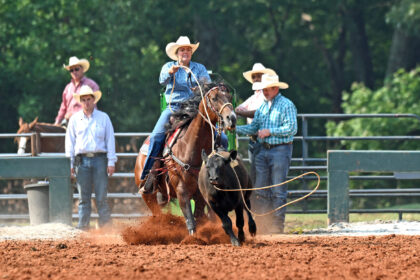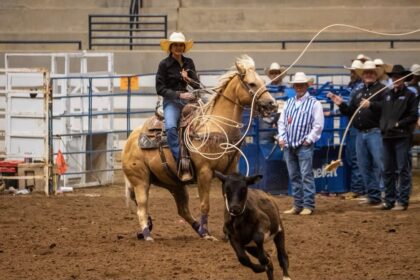When I first met Tim Carothers, I was riding in his cattle working clinic and was quickly impressed with his storytelling and quiet confidence. He listened like a pastor waiting to give counsel to each question a participant posed and encouraged everyone that they’d “done the very best.” He watched the people as well as the horses and gave feedback to both on how to improve. Tim told all of us from the start that he’d be the first one in the arena and the last one out and would stay until we felt like we’d gotten our money’s worth. To no surprise, he was true to his word and acted like nothing was going on in the world but focusing on us, these horses and cows.
For a man of his reputation and busy schedule, I never even saw his cell phone, and probably wouldn’t believe he had one if he hadn’t been great about answering my calls and questions in the months since then. With this complete dedication to his students, he ensured each person got to work on their special interests and concerns. As an added bonus, he seemed to be having as much fun as we were.
Although he never set out to do clinics, he has quickly garnered a respected position in the world of cow horse clinicians and masters of western horsemanship. He credits his close friend and fellow clinician Cody Deering with first putting the idea in his head.
When Deering asked him if he’d consider doing clinics, Carothers was puzzled as to why, and remembers questioning what he would tell someone in a clinic. He replied that he’d probably go and tell them, “Your horse will tell you what he needs. And ride your horse. If you do the second, it will take care of the first. Thanks for coming, you can go home now.” What more could there be to say? The two men got a laugh out of it and the topic was tabled, until several years down the line when a woman hand selected Tim to train her horses after observing him compete in the Road to the Horse Colt Starting Challenge. Most impressed with his work, this woman again pressed the issue–why not do clinics?
Again with the laughter, and yet then with a challenge, Carothers said if she would get it all set up and tell him when to be and where, he’d give it a try. She did, and he shared his insights and friendship with a group of students who started a traveling trend, eventually leading him to eastern NC and the clinic I attended.
He talks with ease about how relating to horses, dogs, and children is very similar. You meet them where they are at and make the wrong thing hard and the right thing easy. When you do this, they get to the point where they are looking for what they can do for you next, rather than you forcing and telling them what they are going to do.
He adds that what people sometimes perceive as kindness ruins more good horses than neglect. Folks don’t want their horses to ever have a fly land on them, or get rained on, or cold, just like working dogs that are never allowed outside of the dog box or trial arena. They need to be exposed to lots of different things and allowed to see the appropriate reaction and expectations in all situations. Quite simply, they need to be able to live, and not be limited to a predetermined path.
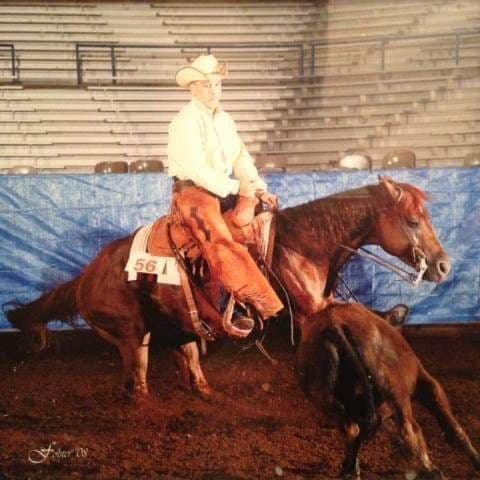
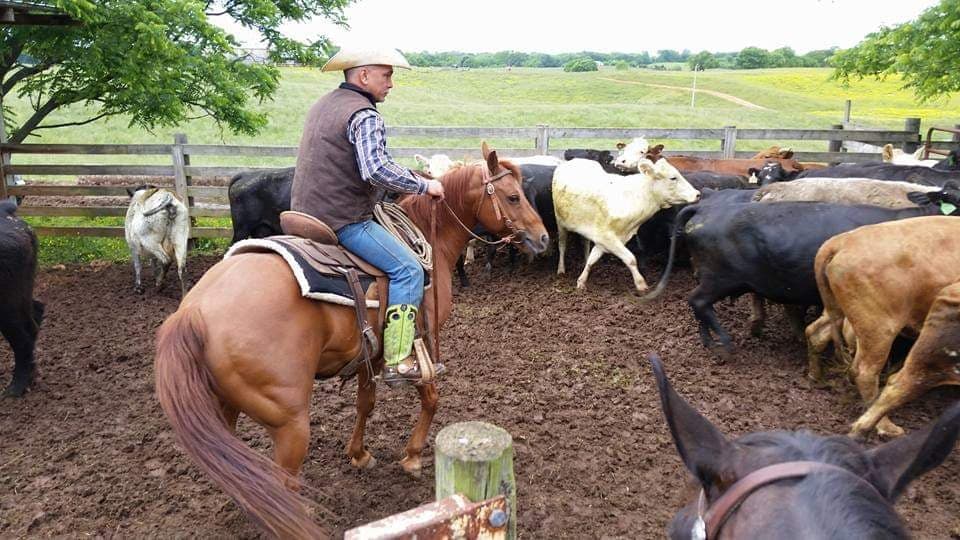
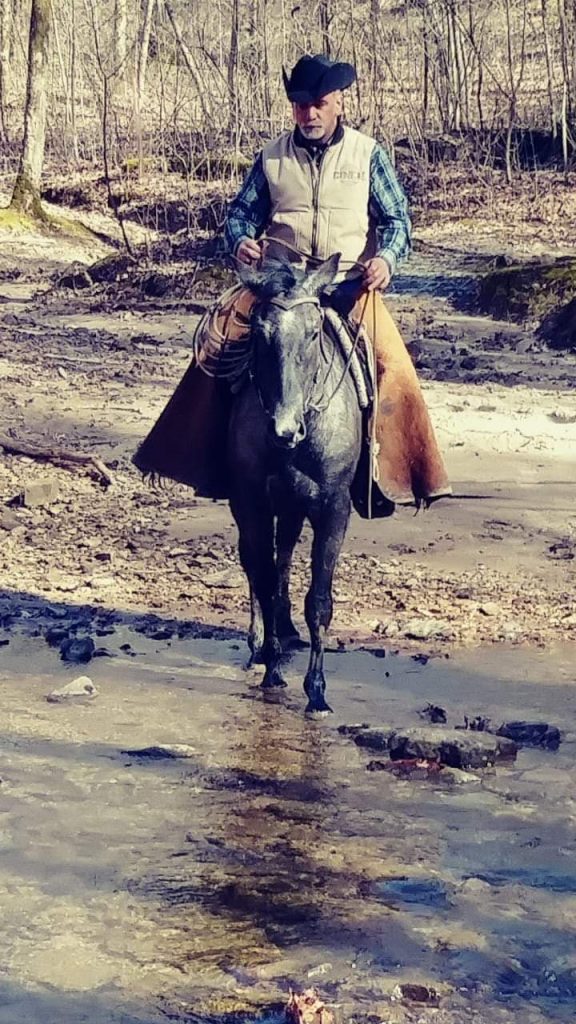
These insights sound simple, but they are powerful and hard won, gathered from years of life in the saddle. As a three-year-old Tim’s dad bought he and his three brothers a pony. While his siblings found other passions, Tim discovered there was something about a horse he couldn’t live without. His dedication and grit led to many a day getting bucked off that pony fix or six times, but always climbing back on. As he got older, he went to work for a neighbor’s cattle operation and would often be allowed to ride their horses after work. A young entrepreneur, he struck a deal with the neighbor to buy one of his horses in exchange for 100 hours’ worth of work at the minimum wage rate of $3 an hour. He rode that horse right on home, and put him in the barn, a turning point in his journey of setting goals and making it happen.
He speaks of his father and family with great love, and it becomes clear that to Tim cowboying is a way of life based on integrity and faith in God beyond just four legs and wide open spaces.
Tim’s a cowboy. He reads cows and horses like he does people, predicting their next move before they know it themselves. He’s not a made in the arena man, but one who developed his talents through riding ranges in several states and sitting on a slew of different horses. He’s the man you call on. Over the years the calls have ranged from cow catching, livestock hauling, horse shoeing, horse training, cowboying on multiple ranches, horsemanship and cattle clinics, and like most good men, helping the neighbor out who is having a hard time.
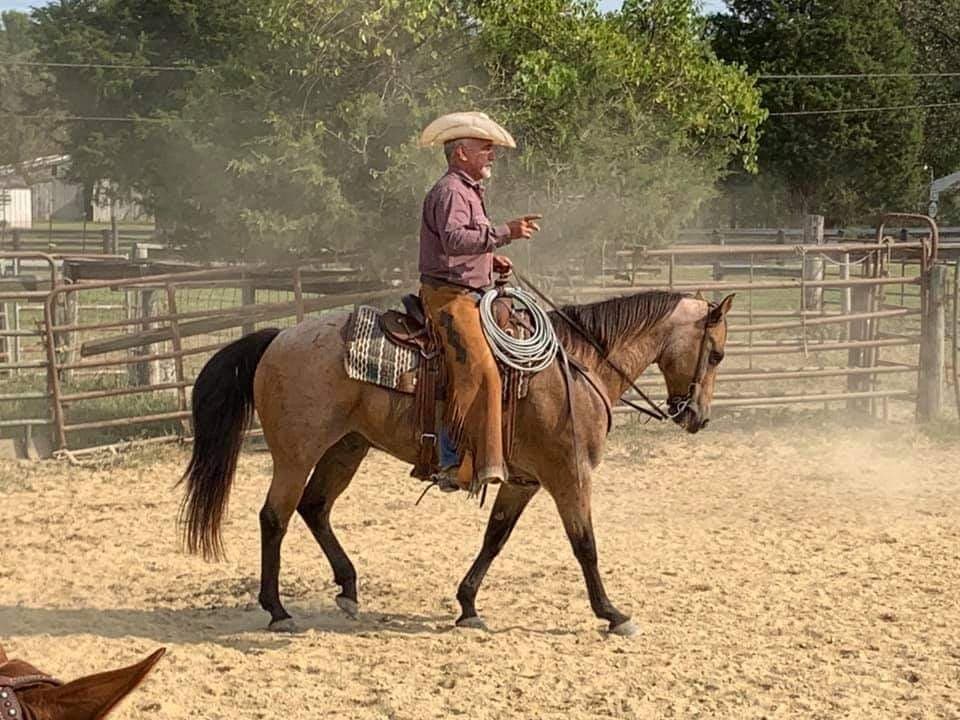
It’d be easy to write a book about his adventures with horses and wisdom, and another feature will be coming soon with a special focus on the generational Carothers horsemanship and his special young son Ryder, who recently started training his first filly.
If you need just about anything done with a horse, I highly recommend calling Tim. As his better half says, he’s a walking country song, and a sure fine one.
